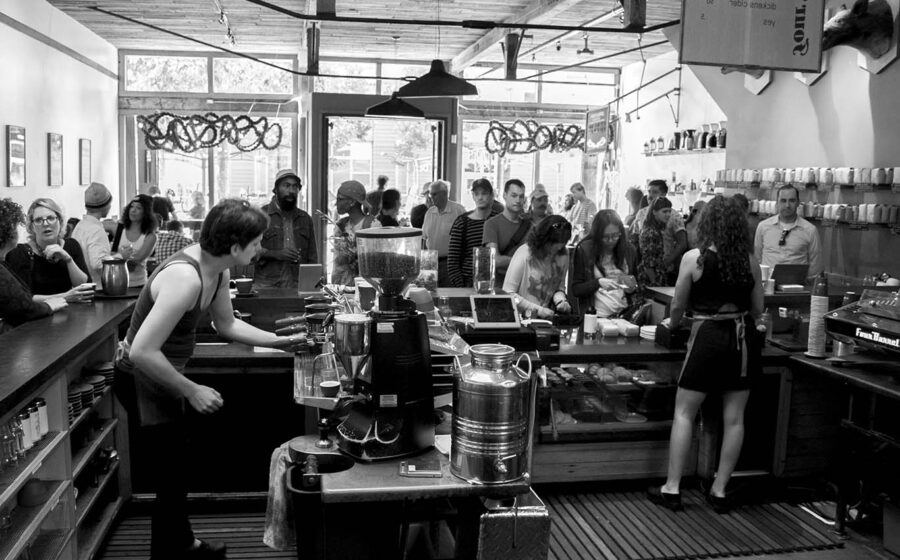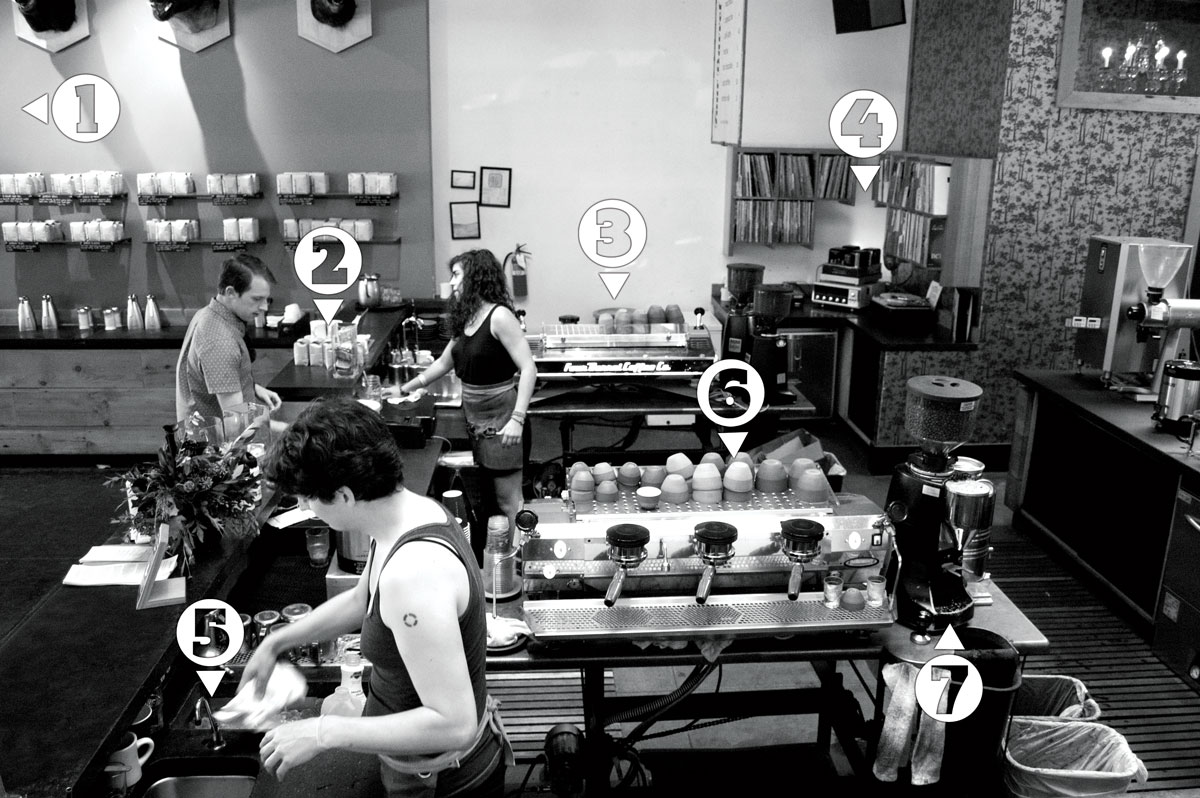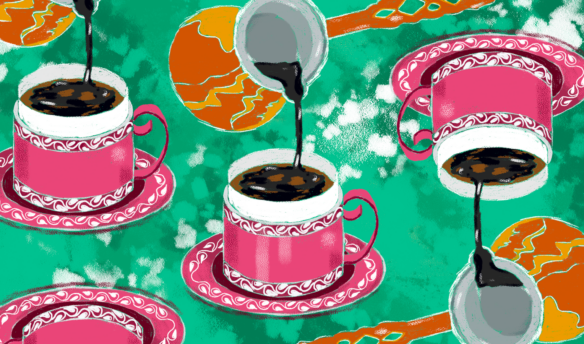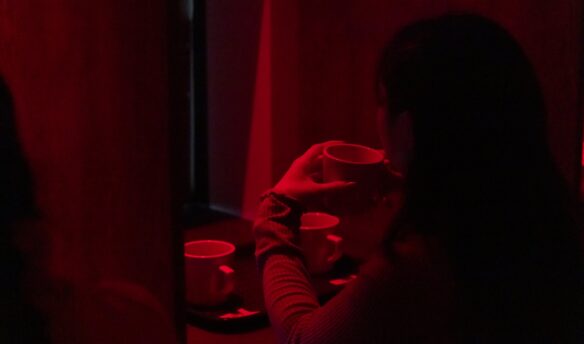[A]t Four Barrel Coffee’s Valencia Street café, in the city’s Mission District, you’ll find quintessential San Franciscan craft coffee. Beans are roasted light but not too light, a slow bar highlights single origins, vinyl is spun, and a neighborhood feel converges with a gentility evocative of the city’s fine-dining scene. (Instead of receiving a yell-back of each drink order, patrons are given a personal wave and a smile when their beverage is up.)
You’ll also find touches that speak to the roasting company’s personality. From the boar heads along one wall to an auditory backdrop heavy on seventies classics, to each hand-sanded ceramic cup, the café—the first of three in the city—bleeds the individuality and passion of owner Jeremy Tooker, who launched Four Barrel in 2007, selling drinks from a cart in the alley out back.
Back then, the Mission was just beginning its transition from historic yet rough-around-the-edges borough to gentrified hipster Mecca. In the years since, Four Barrel graduated from alley cart to bespoke storefront, and the Mission “grew up” around it, trading in pawn shops and panaderías for high-end home goods stores, five-star restaurants, eccentric bars, and an impressive roster of specialty coffee and tea shops, while retaining its grit and Latin flavor. Today Four Barrel’s flagship location extends onto the Valencia Street sidewalk, where the city has invested in the construction of sustainable “parklets,” and sporadic sunlight can be enjoyed in style.
The bar at Four Barrel runs with efficiency and friendliness, always well staffed and usually slammed. Lots of room to move around and a barista station that flows like a bartender’s ensure lines move quickly. To further mitigate wait times, a reincarnation of Tooker’s original set-up, the Four Barrel alley café, runs on weekends “for whoever is brave enough to wander down an un-gentrified old alley for coffee,” writes the cafés co-manager, Grant MacHamer. In this city—and for these beans—most are.
1. Up Front: In the front of the shop the slow bar, or Front Bar, offers five single-origin coffees, a single-origin espresso, and individual attention for coffee devotees curious about sourcing, roasting, and preparation.
2. Retail: Dandelion Chocolate (headquartered down the street), pastries from around the city, and a whopping seventeen coffees—all roasted on the Probat UG-15 in the back of the café—are for sale, along with mugs, brewers, grinders, and other tools of the trade.
3. Espresso: Two three-group La Marzocco Mistrals sit on custom-built tables that can be raised and lowered using a hand crank, ensuring an ergonomically friendly workplace. “Those tables are part of why both tall and short people can work here for years without killing their wrists or backs,” says Grant MacHamer.
4. Wax: Vinyl is big in San Francisco, and Four Barrel sticks to it exclusively for the shop’s soundtrack. Employees are given free rein, and a rich collection spans genres.
5. Ice: Almond milk and cow’s milk are chilled alongside easy-to-reach ice, one example of how the bar is streamlined. “A lot of bartenders dig our set-up—it flows more like a bar than a café,” says MacHamer.
6. Ceramics: Oakland ceramic designer Atelier Dion handcrafted and hand-sanded every cup and plate after a year of research and development, resulting in custom pieces that are individualistic but durable.
7. Grinders: A Mazzer Robur E and Robur Manual rule the espresso bar, with a Mahlkönig EK-43 for French press and drip, and a Versalab M3 for single-origin espresso.
—Regan Crisp is Fresh Cup’s associate editor. Photos by Jessica Copi.
















